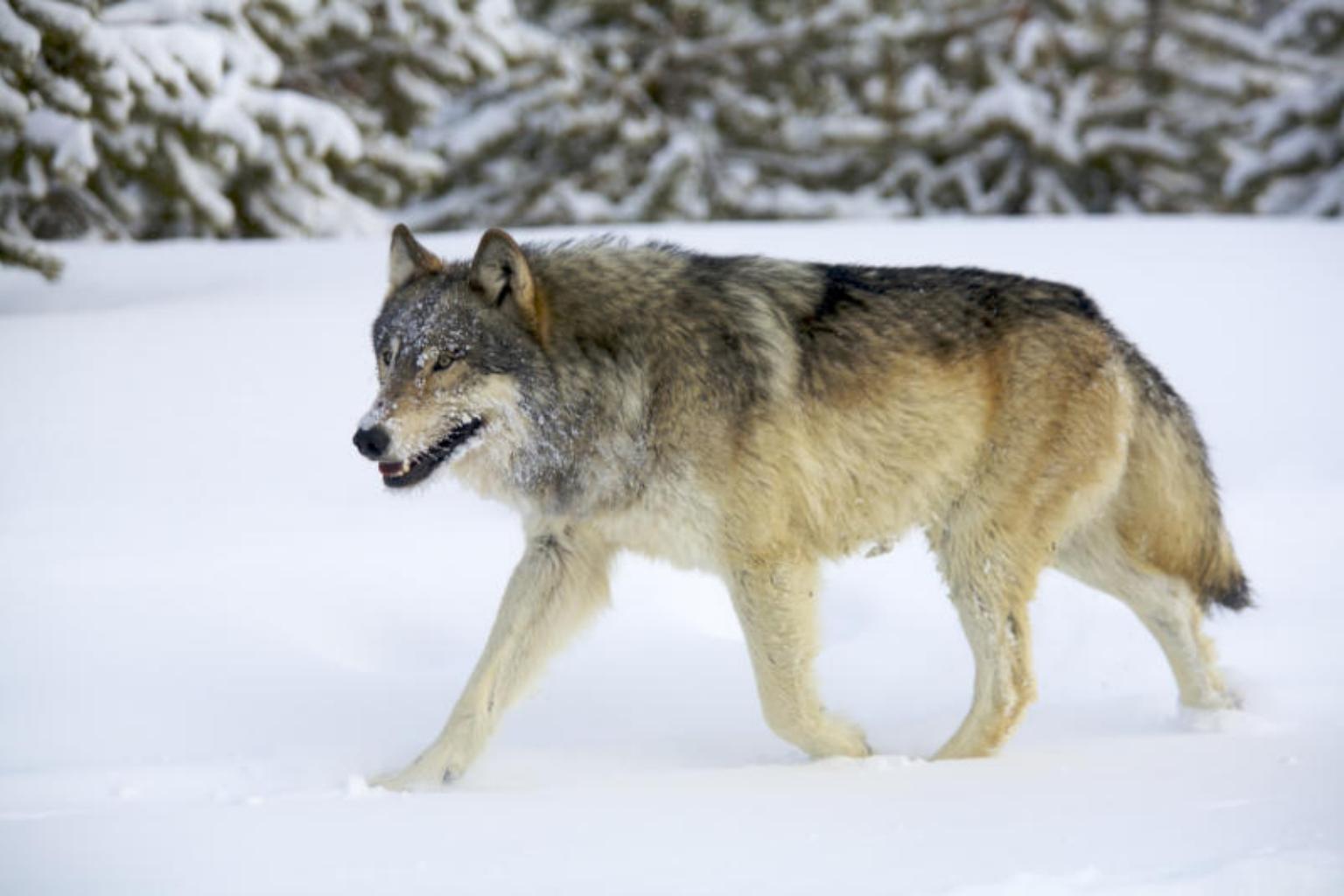Wolves on the ballot in Colorado a symbol of America's culture wars
Sign up now: Get ST's newsletters delivered to your inbox

Wolves were controversially reintroduced in 1995 in Yellowstone National Park in Wyoming, north of Colorado.
PHOTO: HENRY HOLDSWORTH
Follow topic:
WASHINGTON - The eyes of the world will be on the United States' Nov 3 election, but they may miss an unusual item also on the ballot for the Rocky Mountain state of Colorado - whether to reintroduce wolves (wiped out by 1940) in the state.
Indications are that the proposal, years in the making, will be approved. But not without controversy; the much-maligned wolf, demonised in fairy tales and killed off from most states, has unwittingly become part of America's "culture wars".
Mostly liberal urban populations by and large support their reintroduction, while ranchers - mostly conservatives - do not, on the grounds that they kill livestock. Elk hunters also do not approve - and hunting licence fees are a good source of revenue for the state.
Cattle and sheep ranchers are a small proportion of Colorado's population, but have outsized economic clout.
Part of the problem is also that wolves also loom large in the human imagination. They represent forces that neither ranchers nor hunters can control, ecologist and author George Wuerthner wrote in February in the magazine Counterpunch.
"The old bias against predators is based more on a cultural attitude as any scientific value," he wrote.
"Wolves also represent to some people the actions of distant people (despised coastal residents) or a federal government which they too hate - except, of course, for all the federal welfare bestowed on them - also coming primarily from the same coastal residents who pay the bulk of all taxes."
But it is almost a given that the measure is going to pass, Dr Peter Cutter, a conservation scientist who lives in Boulder, Colorado, told The Straits Times.
"It's going to be controversial, the people who are going to vote for it are probably not the ones who will be in the thick of it, but everyone has a legitimate stake in the outcome and even in that outcome, with city people voting for an impact on the country, it's definitely needed, and it is worth it."
Examination of the data from states which do have wolves - like Montana, Idaho and Wyoming - shows that wolves kill a tiny number of livestock.
"Statistically that number is small; just in Montana, Idaho and Wyoming, only in counties that have wolves and cattle, in 2015 we had .009 per cent cattle losses to wolves," says Mr John Murtaugh, a conservationist with Defenders of Wildlife, one of the organisations driving the effort.
But why reintroduce wolves at all?
A controversial reintroduction in 1995 in Yellowstone National Park in Wyoming, north of Colorado, provides the answer.
The project has turned out to be a model. Wolves curb the numbers of deer and elk - their preferred prey - from proliferating. In the process, entire ecosystems including water catchment areas are renewed and rebalanced.
Essentially because of the extermination of predators, deer and elk have proliferated, not just in Colorado but in most of the United States - where wildlife populations are intensively managed.
"I don't think it's debatable that the elk herds here are overblown, they are the least healthy they've been in a long, long time," Dr Cutter said.
Colorado has the largest elk herd in the world. "We have over 700,000 deer and elk, so we have plenty of prey," Mr Murtaugh said.
The state also has millions of acres of land in the west that is prime habitat and also part of the wolves' historical range before they were exterminated, connecting wolf populations from Canada to Mexico. So space is also not a problem.
But it will continue to be a challenge to manage conflict, Mr Murtaugh acknowledged - in line with global trends where wildlife-human conflict (acute in some countries in Asia) is a growing problem.
And in this "culture war" of rural versus urban values, different values need to be respected.
"You would be very hard-pressed to turn any rancher who is vocally opposed to wolves into a wolf supporter," Mr Murtaugh said. But getting all parties to the table would yield solutions in terms of better protecting livestock.
"In terms of the ballot we want to focus on votes we can win. However we want to maintain relations with these ranchers and producers because we recognise this affects them differently than somebody who lives in the city who will never have to deal with a wolf," he said.

